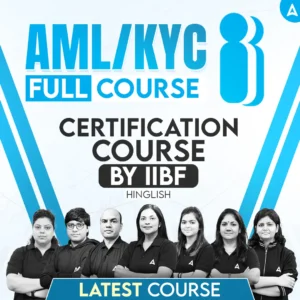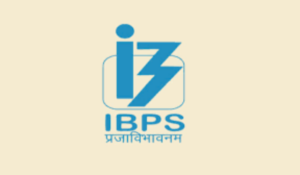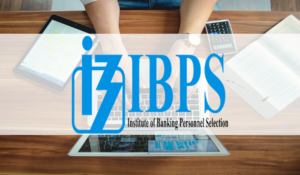The IIBF AML KYC Syllabus 2025 has been officially released by the Indian Institute of Banking & Finance (IIBF) along with the exam schedule. The Certificate Examination in Anti-Money Laundering & Know Your Customer (AML/KYC) is conducted every month.
The AML/KYC certification is one of the most essential qualifications for banking professionals to strengthen their understanding of customer due diligence and compliance standards. This exam ensures that professionals are well-versed in the Prevention of Money Laundering Act (PMLA), RBI guidelines, and global anti-financial crime practices.
IIBF AML KYC Syllabus 2025
Banks and financial institutions have established dedicated departments for areas such as credit cards, housing loans, trade finance, and Bancassurance. To ensure compliance with Know Your Customer (KYC) and Anti-Money Laundering (AML) regulations, the IIBF introduced this certification to provide a comprehensive understanding of global and domestic AML/KYC frameworks.
The course aims to equip professionals with the knowledge and skills necessary to implement risk-based customer identification processes, detect suspicious transactions, and strengthen financial integrity within organizations.
IIBF AML KYC Exam Pattern 2025
Before diving into IIBF AML KYC Syllabus, candidates must understand the structure and format of the exam. The IIBF AML/KYC exam follows the pattern given below:
| IIBF AML KYC Exam Pattern 2025 |
|
| Particulars | Details |
| Mode of Exam | Online (Remote Proctored) |
| Type of Questions | 120 Objective Type (Multiple Choice) |
| Maximum Marks | 100 |
| Duration | 2 Hours |
| Negative Marking | No |
| Medium | English Only |
| Passing Criteria | Minimum 60 Marks out of 100 |
Examinations are conducted on pre-announced dates published on the IIBF website, typically on the 2nd and 4th Saturdays and all Sundays of the month.
IIBF AML KYC Syllabus 2025
The Anti-Money Laundering (AML) and Know Your Customer (KYC) course by the Indian Institute of Banking and Finance (IIBF) focuses on developing professional competence among banking and financial sector employees in understanding and implementing AML and KYC guidelines. The IIBF AML KYC Syllabus is designed to equip candidates with comprehensive knowledge of money laundering mechanisms, prevention methods, regulatory frameworks, and customer due diligence processes.
Anti Money Laundering
Money Laundering – Origin – Definition – Techniques Impact on Banks -Structuring; Integration, Preventive Legislations – International Co-operation – UK; USA; India – Basel Committee -PMLA Objectives – RBI Guidelines – System Adequacy to Combat Money Laundering – Antiterrorism finance – Financial Intelligence Unit (FIU)
The Financial Action Task Force (FATF) – IBA Working Group – Software for AML
Screening: Money Laundering and Correspondent Banking – Exchange Companies – Foreign Branches
Know Your Customer
Customer Profile – KYC Policies – Countries Deficient in KYC Policies, Initiatives by the RBI – Organized Financial Crimes Customer – Definition under the KYC Principles – Transaction Profile – Organizational Structure – Important KYC framework in RBI prescriptions – Operating Guidelines. Introduction of new accounts – Guidelines for Opening Accounts of Companies, Trusts, Firms, Intermediaries etc., Client Accounts opened by Professional Intermediaries Trust/ Nominee or Fiduciary Accounts – Accounts of Politically Exposed Persons (PEPs) Residing Outside India, Accounts of ‘non-face-to-face’ Customers – Qualitative data – Joint accounts – Minor accounts – KYC for existing accounts – KYC for low income group customers. Monitoring Accounts – Customer research – Suspicious transactions.
IIBF AML KYC Syllabus Study Material and E-Learning
The Institute provides a comprehensive courseware (book and e-learning content) covering the complete IIBF AML KYC Syllabus. Candidates are advised to regularly refer to:
- Official IIBF courseware and e-learning modules
- RBI Master Circulars & Directions
- IIBF publications like Bank Quest and IIBF Vision
- Updates from RBI, SEBI, BIS, IRDAI, and other regulatory bodies
As the banking sector is dynamic, candidates must stay updated with the latest financial developments up to the relevant cut-off dates for the examination.




 Mayan Baranwal’s Inspiring Comeback: Fro...
Mayan Baranwal’s Inspiring Comeback: Fro...
 IBPS Clerk Mains Result 2025-26 Out at i...
IBPS Clerk Mains Result 2025-26 Out at i...
 IBPS Clerk Mains Cut Off 2025-26 Out, Ch...
IBPS Clerk Mains Cut Off 2025-26 Out, Ch...








